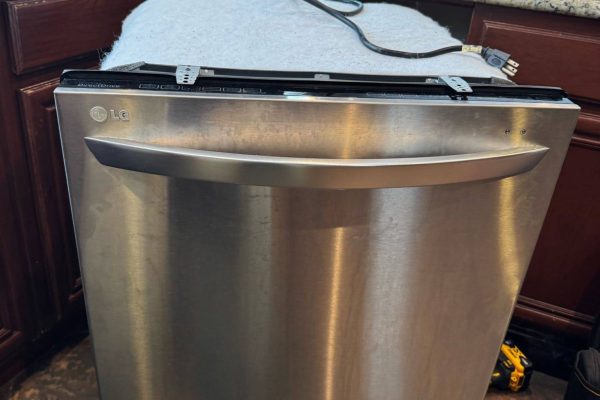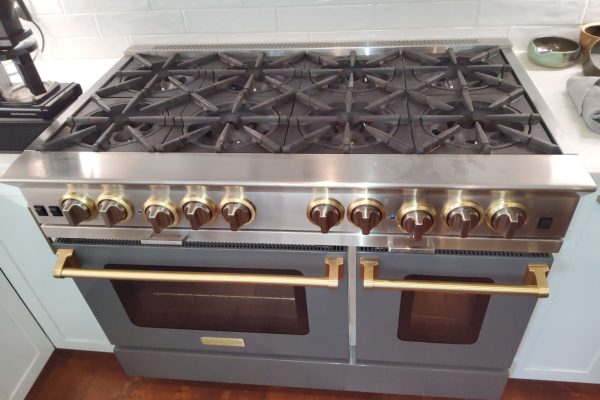The compressor cooling system serves as the heart of a refrigerator, playing a pivotal role in maintaining the appliance’s cooling functionality. When the compressor malfunctions or encounters issues, it can significantly impact the refrigerator’s ability to maintain proper temperatures, leading to concerns about food preservation and overall efficiency.
Understanding the Compressor Cooling System
The compressor is a vital component of the refrigeration cycle, responsible for compressing refrigerant gases to extract heat from the refrigerator’s interior. This process generates a cooling effect, allowing the refrigerant to absorb heat from the refrigerator’s compartments before releasing it outside, thereby maintaining the desired low temperatures inside the appliance.
Common Issues with Faulty Compressor Systems
Several problems can arise when the compressor cooling system in a refrigerator encounters faults:
Inadequate Cooling: A malfunctioning compressor may struggle to compress refrigerant gases efficiently. This results in insufficient cooling within the refrigerator compartments, leading to elevated temperatures and potential food spoilage.
Continuous Running or Cycling: A faulty compressor might run continuously without achieving the desired cooling levels, or it may excessively cycle on and off, disrupting the temperature stability within the refrigerator.
Unusual Noises: Compressor issues can produce abnormal sounds like clicking, buzzing, or rattling, indicating potential mechanical problems or electrical faults within the system.
Warm Exterior Surfaces: If the compressor is struggling or failing, it may cause the refrigerator’s exterior surfaces, particularly near the compressor unit, to feel warmer than usual.
Potential Causes of Compressor Malfunctions
Overheating: Excessive heat can cause the compressor to overwork or malfunction. Factors such as poor ventilation around the appliance, high ambient temperatures, or dust accumulation near the compressor unit can contribute to overheating.
Refrigerant Leaks: Leaks in the refrigerant lines or components can lead to reduced efficiency of the cooling system, causing the compressor to work harder to maintain desired temperatures.
Electrical Issues: Problems with electrical connections, relays, or start capacitors can hinder the proper functioning of the compressor, affecting its ability to start or operate efficiently.
Mechanical Wear and Tear: Over time, wear and tear on compressor components, such as piston rings or valves, can compromise its performance, resulting in decreased efficiency or outright failure.
Troubleshooting Steps
If experiencing issues with a faulty compressor cooling system in the refrigerator, several steps can be taken:
Temperature Check: Monitor the refrigerator’s internal temperature to ascertain whether it’s rising above the desired levels, indicating a potential compressor issue.
Inspect for Obstructions: Ensure proper airflow around the compressor unit by removing any obstructions or debris that might impede ventilation.
Clean Condenser Coils: Dirty or clogged condenser coils can hamper heat dissipation. Cleaning these coils with a vacuum or brush can improve the system’s efficiency.
Professional Diagnosis: If basic troubleshooting fails to resolve the issue, seeking assistance from certified technicians or the manufacturer’s service center is advisable. Professionals can conduct a comprehensive assessment and identify specific compressor-related problems.
Seeking Professional Assistance
For complex issues or suspected compressor malfunctions in the refrigerator, it’s essential to engage the expertise of trained professionals. Certified technicians possess the skills and tools required to diagnose compressor problems accurately. They can perform tests, such as checking refrigerant levels, inspecting electrical connections, or assessing mechanical components, to pinpoint and rectify issues affecting the compressor cooling system.
A faulty compressor cooling system in a refrigerator poses a significant concern for homeowners, impacting the appliance’s ability to maintain optimal temperatures and preserve stored food items. Understanding the signs of compressor malfunctions, such as inadequate cooling, unusual noises, or continuous running, is crucial for timely intervention.
Basic troubleshooting steps like cleaning coils and ensuring proper ventilation can sometimes address minor issues. However, for persistent problems or suspected compressor faults, seeking professional assistance from certified technicians ensures a comprehensive diagnosis and resolution, restoring the refrigerator’s efficiency and reliable cooling performance. Regular maintenance and prompt attention to compressor-related issues are key to ensuring the longevity and functionality of the refrigerator’s cooling system.
Our services are your reliable way to solve problems with household appliances! If your appliances require repair, don’t worry – contact Oceanside Appliance Service Center and we will help you forget about any inconvenience.
Our company has many years of experience in repairing household appliances of various brands and models. Our team of highly qualified technicians has deep knowledge and experience in working with refrigerators, washing machines, dryers, dishwashers, stoves, ovens and other devices.
We guarantee a professional approach to each task and the use of only original spare parts for repairs. Restoring your household appliances to optimal condition is our main goal.
Contact us


